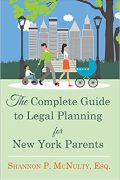As we age, the chances of requiring home health care services, assisted living, or nursing home care increase for all of us. Referred to as long term care, this type of health care can be extremely expensive, and it is not covered by Medicare or other health insurance. As a result, this type of care can deplete your life savings, leaving your spouse with few assets and eating up any money you planned to leave to your family.
To protect their home from long term care expenses so that it can be passed down to their children, many older parents will transfer their home to a Medicaid Trust, which allows the parents to continue to live in the home, while also protecting it from long term care expenses as they age.
A Medicaid Trust isn’t for everyone, as it requires significant trade-offs. You give up ownership of the house, so it’s not a good strategy if you’re planning to fund your retirement by selling your house in the future. This strategy can also limit the options for your care, since not all care facilities accept Medicaid. If you have sufficient assets to pay for premium care, using those assets will provide more flexibility than relying on Medicaid.
In our upcoming episode of Village Talk, our Founder Shannon McNulty and estate planning attorney Jamie Wolf will discuss how Medicaid Trusts work, the tradeoffs of this type of planning, and factors to consider in determining whether Medicaid planning is the right option for your or your family.
Read our corresponding articles:


